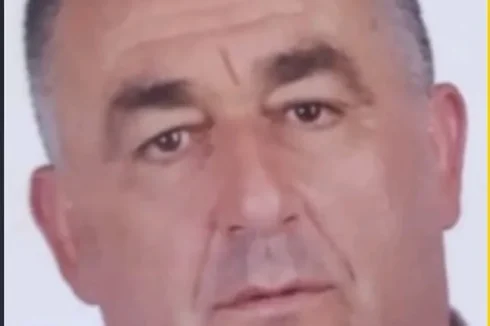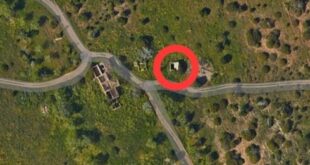ONE of Europe’s most wished drug lords has been arrested in Madrid.
Haredin Fejzulla, a 59-year-old Albanian nationwide, was captured final week within the district of Carabanchel after a year-long manhunt.
Fejzulla had been on the run since his conviction in Belgium in 2022 for a string of high-level drug-related offences.
Belgian authorities had issued three European Arrest Warrants for his arrest, and he was included on Europol’s listing of Europe’s Most Wished Fugitives.
READ MORE: Spain roots out ‘narco moles’ amongst high-ranking cops: 10 arrests are made in Andalucia and Valencia

He was sentenced to 29 years in a Belain jail in 2022 for 13 severe offences, together with drug trafficking, doc forgery, and membership of a prison organisation.
The Albanian was the pinnacle of a classy Kosovar-Albanian narco operation accountable for cultivating and trafficking wholesale portions of hashish throughout Europe.
Regardless of intensive efforts by regulation enforcement companies in Belgium and Spain who suspected he was laying low in Madrid, Fejzulla managed to evade seize for over a yr.

The breakthrough within the case got here when Spanish police acquired intelligence suggesting that Fejzulla was hiding out within the Madrid neighbourhood of Carabanchel.
To keep away from seize, the drug lord had been transferring between protected homes across the metropolis, swapped autos usually, and incessantly switched cellphones to throw counter-narco cops off his path.
READ MORE: 5-tonne haul of cannabis is seized on the Guadalquivir River – the brand new narco hotbed in southern Spain
Nonetheless, after a surveillance operation that started in January 2023, Spanish authorities had been capable of cuff him as he approached a van outdoors certainly one of his hiding spots.
Fejzulla is at present in custody, awaiting for Spain’s Nationwide Courtroom to approve his extradition to Belgium.
The prison organisation he led operated with a extremely organised hierarchy, with Fejzulla because the boss.
The gang included gardeners, cleaners, cash handlers, and logistics employees, all of whom contributed to the cultivation and sale of hashish.
False paperwork had been used to hire properties and set up electrical energy connections on the areas the place the unlawful crops had been grown.
The gang additionally preyed upon weak people in precarious monetary conditions to work on the plantations.
A protracted-running investigation by Belgian authorities culminated within the dismantling of 13 hashish plantations, although Fejzulla managed to flee earlier than serving his sentence.
Source link
 Costa News Spain Breaking News | English News in Spain.
Costa News Spain Breaking News | English News in Spain.






